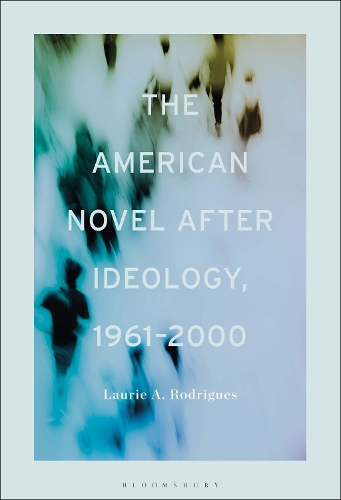
The American Novel After Ideology, 19612000
(Paperback)
Publishing Details
The American Novel After Ideology, 19612000
By (Author) Professor or Dr. Laurie Rodrigues
Bloomsbury Publishing PLC
Bloomsbury Academic USA
30th June 2022
United States
Classifications
Tertiary Education
Non Fiction
Literary studies: c 1900 to c 2000
Literary studies: fiction, novelists and prose writers
813.5409
Physical Properties
Paperback
232
Width 150mm, Height 228mm, Spine 16mm
340g
Description
Claims of ideologys end are, on the one hand, performative denials of ideologys inability to end; while, on the other hand, paradoxically, they also reiterate an idea that ending is simply what all ideologies eventually do. Situating her work around the intersecting publications of Daniel Bells The End of Ideology (1960) and J.D. Salingers Franny and Zooey (1961), Laurie Rodrigues argues that American novels express this paradox through nuanced applications of non-realist strategies, distorting realism in manners similar to ideologys distortions of reality, history, and belief. Reflecting the astonishing cultural variety of this period, The American Novel After Ideology, 1961 - 2000 examines Franny and Zooey, Carlene Hatcher Polites The Flagellants (1967), Leslie Marmon Silkos Almanac of the Dead (1991), and Philip Roths The Human Stain (2001) alongside the various discussions around ideology with which they intersect. Each novels plotless narratives, dissolving subjectivities, and cultural codes organize the texts peculiar relations to the post-ideological age, suggesting an aesthetic return of the repressed.
Reviews
The American Novel After Ideology is essential reading for scholars seeking to interrogate ideologys operational elision from literary studies after the end of WWII, a period first described by Daniel Bell as the end of ideology. Rodrigues perceptive study insists, contra such discourses of the end and of accomplished consensus, on historicizing specific post-war moments in which literary production occurs to reveal omissions, distortions, 'problems of inscription.' These arise at many levels, beginning with critically overlooked and dismissed novels, like J.D. Salingers Franny and Zooey & Carlene Hatcher Polites The Flagellants, which have not received much attention and have disappeared from literary history; uncanny resonances between the works considered; the jarring discontinuities that exist, in these novels, with respect to dominant modes of interpretation and an apparently finished ideological system. Rodrigues rich interpretive frameworkexploratory and interdisciplinarythereby inspires us to reconsider the place of ideology in literary production. * Fabienne Collignon, Senior Lecturer in Contemporary Literature, Sheffield University, UK *
Rodrigues combines insightful close reading, compelling historical evidence, and deft theoretical explication to demonstrate how post-WWII writers wrestled with sociopolitical and literary narratives in a supposedly post-ideological age. Like the texts she examines, Rodrigues interprets interpretation, offering an illuminating study of American cultural meaning-making, as well as a new model for literary interpretation. * Kristin L. Matthews, Professor of English, Brigham Young University, USA *
Author Bio
Laurie A. Rodrigues holds a PhD from the University of Rhode Island. Her research and teaching is focused in 20th- and 21st-century Multiethnic American literatures, cultures, and critical theory.
